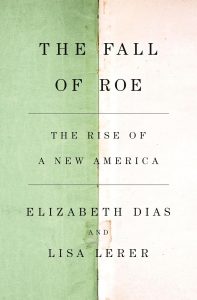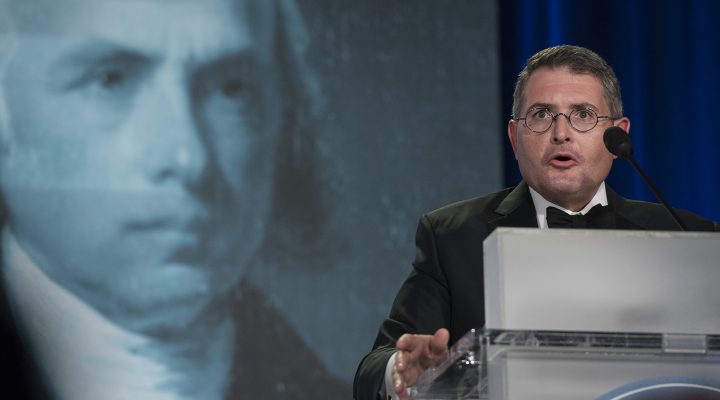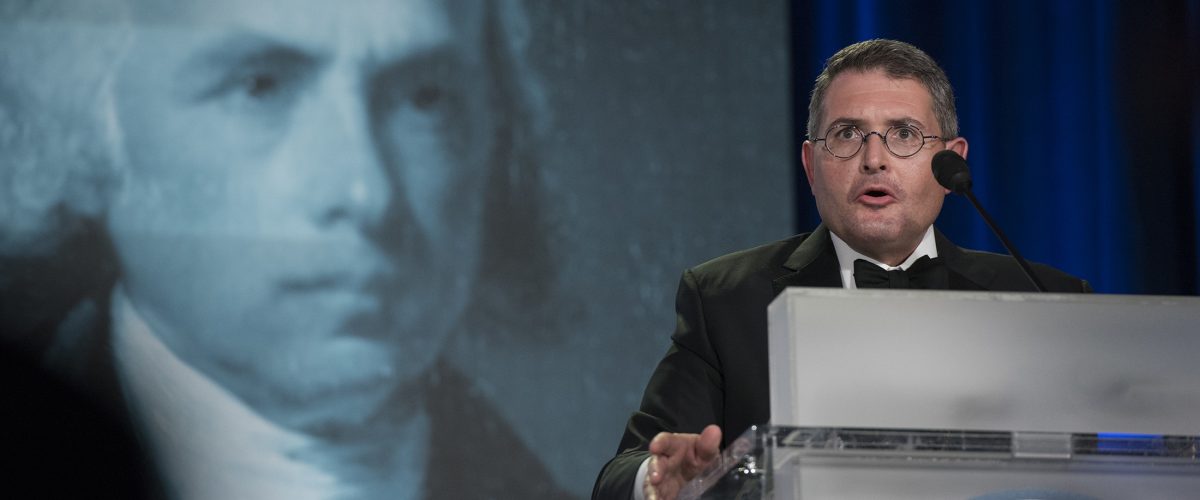Many Americans were caught off guard when the U.S. Supreme Court overturned Roe v. Wade in June 2022. But for a group of committed Christian legal activists, the end of Roe was the fruit of a successful seven-year legislative and legal strategy designed to quickly take advantage of a “generational” opportunity provided by a supportive president and the court’s new 6-3 conservative supermajority.
As one activist said: “God selected this case. He was ready. The justices were ready to hear what we were all going to be talking about.”
The strategy and the people who made it succeed are detailed in a 7,000-word article, “The Untold Story of the Network That Took Down Roe v. Wade,” that appears in a recent Sunday New York Times Magazine. The article is an excerpt from the book, The Fall of Roe, written by Times reporters who cover politics and religion. It was published June 4.
“An elite strike force of Christian lawyers, activists and politicians methodically and secretly led the country down a path that defied the will of a majority of Americans.”
“The story of how an elite strike force of Christian lawyers, activists and politicians methodically and secretly led the country down a path that defied the will of a majority of Americans, who wanted abortion to remain legal, has been hidden until now,” wrote Elizabeth Dias, a graduate of Wheaton College, and Lisa Lerer.
They interviewed 350 people for the book, and their hard work has paid off with a number of scoops about previously undisclosed strategy sessions where elected officials and Christian activists met in secret to plot the end of the right to abortion.
 “It was not only a political battle but a spiritual mission, rooted in their Christian faith and their belief that they were fighting for the highest moral stakes of the modern age,” the article explains. “Their opponents didn’t see what was coming until it was far too late. After so many decades of taking Roe for granted, supporters of abortion rights had grown dangerously complacent and disorganized in ways that made them slow to appreciate the severity of the threat.”
“It was not only a political battle but a spiritual mission, rooted in their Christian faith and their belief that they were fighting for the highest moral stakes of the modern age,” the article explains. “Their opponents didn’t see what was coming until it was far too late. After so many decades of taking Roe for granted, supporters of abortion rights had grown dangerously complacent and disorganized in ways that made them slow to appreciate the severity of the threat.”
The story begins nine days after Donald Trump was elected president in 2016. The setting was the Federalist Society’s annual D.C. conference, attended by Supreme Court justice and Federalist Society member Samuel A. Alito Jr.
During his four-year presidency, Trump would appoint three Federalist Society members to the high court. When Justice Clarence Thomas swore in new Justice Amy Coney Barrett seven days before the 2020 presidential election, that meant a majority of the justices were Society members.

Elizabeth Dias and Rachel Lerer
The Federalist Society’s judges and justices found the case they needed to overturn Roe thanks to another influential conservative legal group, Alliance Defending Freedom, the $104 million Christian group founded in 1994 by James Dobson of Focus on the Family and others to move law to the right and combat progressive legal groups such as the ACLU. ADF has won more than a dozen cases before the Supreme Court.
Dias and Lerer describe an ADF gathering of government officials and activists a year after Trump’s election: “ADF convened hundreds of top conservative leaders at the luxurious Ritz-Carlton in Laguna Niguel, Calif., for a private four-day summit. The stated goal was to discuss religious freedom. But the deeper ambition was to develop an agenda for the new Trump era. The guest list included 10 state attorneys general and solicitors general; a collection of the most powerful Christian lawyers in the country; and Jeff Sessions, Trump’s new attorney general. Sessions initially kept his remarks, which offered a strident defense of religious freedom and ADF’s work, a secret from the public.”
ADF’s team went to work:
- Crafting “airtight” state legislation that would restrict abortion after 15 weeks, thus challenging Roe.
- Finding the right state to enact it, settling on Mississippi, where ADF’s Gestational Age Act was passed in 2018.
- Later defending the bill when it was challenged.
In Mississippi and other states, more than 1,600 anti-abortion bills were introduced, many of them sponsored by female state representatives, making it harder for opponents to label the bills “anti-woman.”
Likewise, ADF’s efforts were led by two female attorneys, ADF President Kristen Waggoner and Erin Hawley, wife of Sen. Josh Hawley of Missouri.
Dias and Lerer report on a number of previously undisclosed meetings, including a Mississippi gathering ADF organized where government officials and religious activists plotted their legal defense of the state’s 15-week abortion ban: “Squeezed around a long table, ADF lawyers lined up on one side and the Mississippi team on the other. This private meeting, one kept secret from the press, top politicians and even other allies in the anti-abortion coalition, would signify a pivotal turning point in the strategy of their movement.”
Trump had promised that “Christianity will have power.” After Roe was overturned in 2022, some sensed that promise was fulfilled.
“While the anti-abortion views of the movement’s leaders still represented a distinct minority of the country, they had built an elite legal and ideological ecosystem of activists, organizations, lawmakers and pro bono lawyers around their cause,” the article states. “Their policy arms churned out legal arguments and medical studies. Their lawyers argued their cases, and their judges ruled on them … and their allied lawmakers pushed their agenda in statehouses and Congress. Yet despite their overwhelming success, many on the left continued to underestimate them. It was their greatest strength.”
Related articles:
One year after Roe was overturned, states have a ‘hodgepodge of laws’
Indiana court cites religious freedom as reason to override abortion ban
Roe v. Wade, the great divider | Analysis by Erich Bridges


